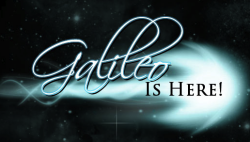Eclipse Galileo: The release train leaves the station

Eclipse Galileo's big day has arrived
The Eclipse Foundation's annual release train, this year dubbed Galileo, has now been released. According to Mike Milinkovich, Executive Director at the Eclipse Foundation, the Eclipse release train brings together a large number of Eclipse projects and synchronises them into a single release with the aim of making "commercial adoption simple and straightforward". The idea is that rather than a commercial adopter trying picking up what could be dozens of separate projects, by using the release train, they can plan for one major annual update.
Milinkovich said "When it was just the IDE, things were simpler". The first named release train of Eclipse, released in 2006, was Callisto which incorporated ten projects. The Galileo release train incorporates thirty three projects, with ten new projects added since last years Ganymede release, over 24 million lines of code in total.
Having started as a integrated development environment (IDE) for Java applications, Eclipse has grown far beyond its origins, providing a runtime platform, development and tools for a number of languages, modelling, customised editors, XML tools and reporting. With Galileo, the focus was on three themes, improving the runtime system, expanding the modelling technology and increasing adoption of Eclipse in the enterprise.
The new projects added to the release train are:
- Accessibility Tools Framework for the creation of accessibility validation tools
- EclipseLink a Java ORM based on TopLink
- DSDP (Device Software and Development Platform) tools for Mobile Linux
- DSDP tools for Mobile Java
- Java Workflow Tools
- Memory Analyzer for tracking down leaks
- PHP Development Tools
- Riena, a framework for enterprise client/server applications
- Swordfish, an SOA runtime framework
- Xtext for creating domain specific languages (DSLs)
Xtext is part of the improved modelling support for Eclipse, bringing the capability of creating languages which are specific to the processes and data that they are handling. Improvements to the Eclipse runtime system include support for the new OSGi 4.2 specification and the ability to handle distributed OSGi services.
Eclipse developers have now added support for Mac OS X Cocoa for 32 and 64 bit platforms; this was a needed change as Eclipse's SWT toolkit on Mac was based on Carbon which Apple have signalled as deprecated. A Carbon based version is still available and there is some guidance on the differences between the versions. Solaris 10 is now also supported. According to Eclipse, the PHP tools make Galileo the first PHP IDE to support PHP 5.3. XSL tooling has also been added to make it possible to edit and debug XML style sheets. For collaboration, a new WikiText editor, which understands wiki mark-up languages, has been incorporated, making it easier to create help pages and update team wikis.
One element of community success was the Eclipse Babel project, a crowd sourced translation project. Thanks in part to contributions by Adobe, Eclipse 3.5 in the Galileo release train is available with six language packs; German, French, Japanese, Korean, Simplified Chinese and Traditional Chinese.
According to Milinkovich, planning for the next release train will start later this year, around October, but has already been named, "Helios". The H asked about other speculations on the Eclipse foundations plans. Earlier in the year the suggestion was made that the Eclipse project drop binary releases of Eclipse and allow third parties to package and distribute binaries. Milinkovich said that this was not going to happen, "It's too big a change to give up binary releases". Another rumour was that Eclipse were considering an App Store, as these were the latest marketing flavour for distribution. Pointing out that Eclipse already had an Eclipse Plugin site, which is due a major revision later this year, Milinkovich added that the Foundation were watching developments and investigate possibilities, but had no plans as yet.
(djwm)
![Kernel Log: Coming in 3.10 (Part 3) [--] Infrastructure](/imgs/43/1/0/4/2/6/7/2/comingin310_4_kicker-4977194bfb0de0d7.png)

![Kernel Log: Coming in 3.10 (Part 3) [--] Infrastructure](/imgs/43/1/0/4/2/3/2/3/comingin310_3_kicker-151cd7b9e9660f05.png)
















